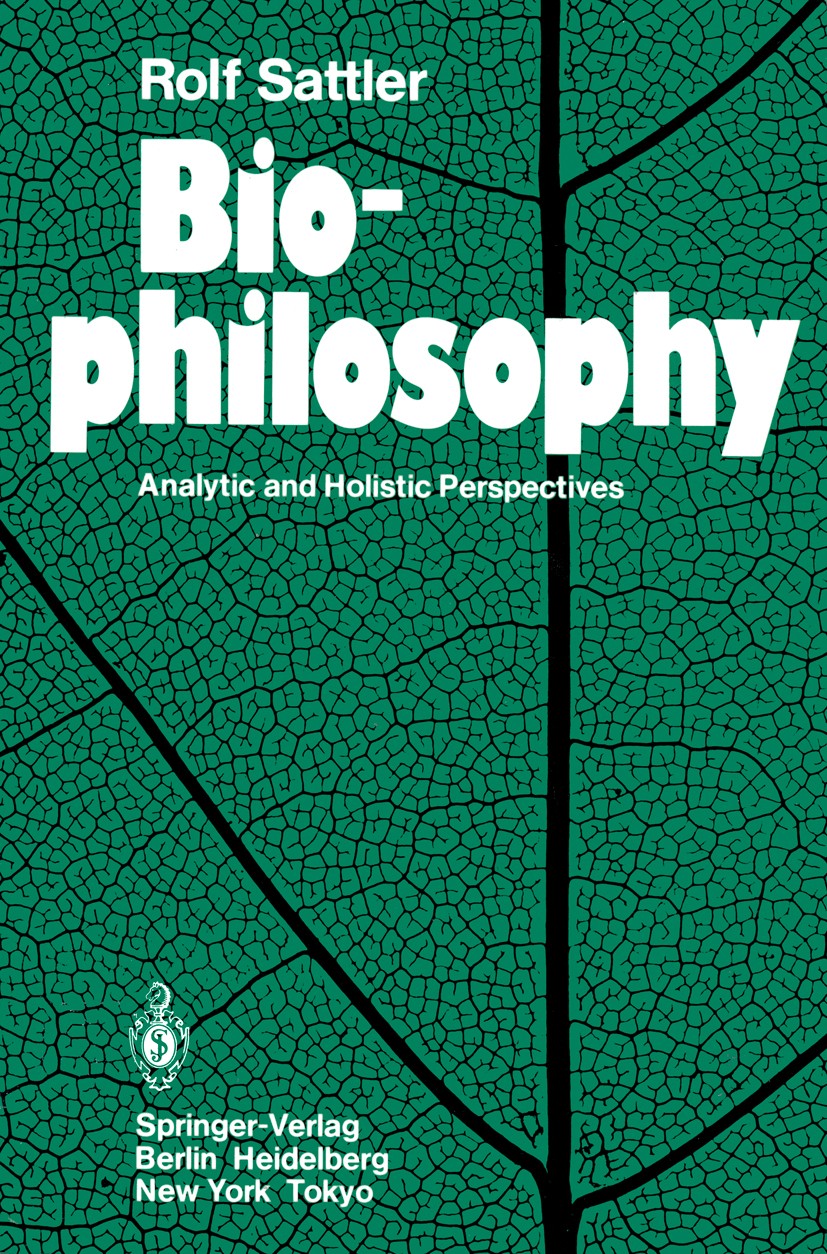| 期刊全稱 | Biophilosophy | | 期刊簡(jiǎn)稱 | Analytic and Holisti | | 影響因子2023 | Rolf Sattler | | 視頻video | http://file.papertrans.cn/189/188323/188323.mp4 | | 圖書(shū)封面 |  | | 影響因子 | This book is an introduction to biophilosophy, written primarily for the student of biology, the practicing biologist, and the educated layperson. It does not presuppose technical knowledge in biology or philosophy. However, it requires a willingness to examine the most basic foundations of biology which are so often taken for granted. Furthermore, it points to the bottomlessness of these foundations, the mystery of life, the Unnamable .,. I have tried to further the awareness that biological statements are based on philosophical assumptions which are present in our minds even before we enter the laboratory. These assumptions, which often harbor strong commitments, are exposed throughout the book. I have tried to show how they influence concrete biolog- ical research as well as our personal existence and society. Thus, emphasis is placed on the connection between biophilosophy and biological research on the one hand, and biophilosophy and the human condition on the other. | | Pindex | Textbook 1986 |
The information of publication is updating

|
|
 |Archiver|手機(jī)版|小黑屋|
派博傳思國(guó)際
( 京公網(wǎng)安備110108008328)
GMT+8, 2025-10-8 14:05
|Archiver|手機(jī)版|小黑屋|
派博傳思國(guó)際
( 京公網(wǎng)安備110108008328)
GMT+8, 2025-10-8 14:05


